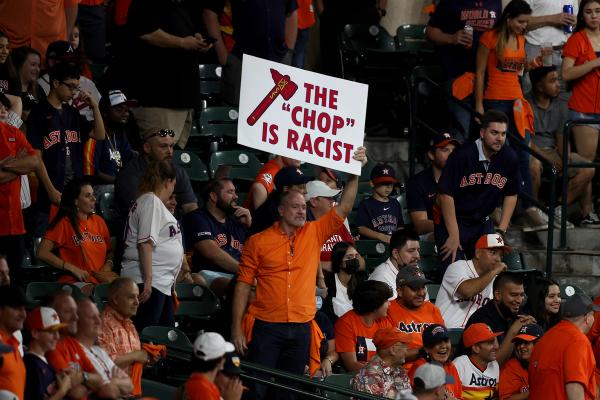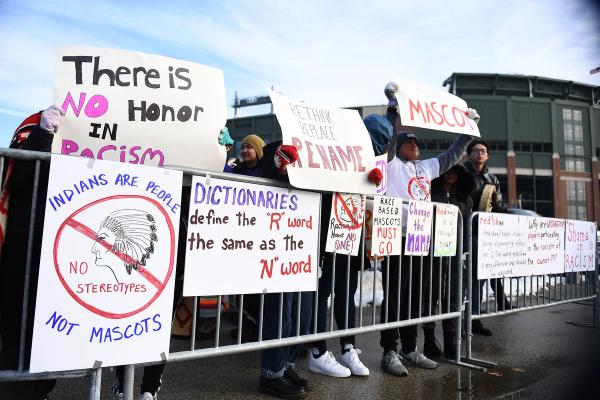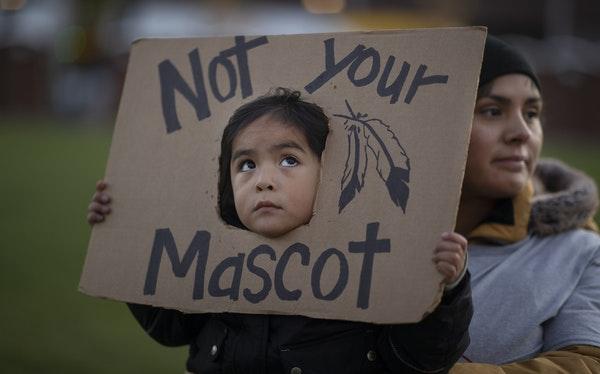📖 History and context
The movement to remove harmful “Indian” mascots traces back to the 1968 National Congress of American Indians (NCAI) campaign against stereotypes in pop culture and sports mascots.
Indigenous activism has led to the removal of many names and mascots, but the work is ongoing. Studies show the real damage caused by these stereotypes on both Indigenous and non-Indigenous people.
The use of “Indian” mascots has been linked to lower self-worth in Native American participants and an increase in racial slurs by non-Indigenous individuals. The imagery also impacts Indigenous youth’s beliefs about their potential based on race.
These mascots have lasting effects, and it is time for change beyond just a game or chant.
⏳ The fight continues

Source: Bob Levey/Getty Images
The 2021 World Series highlighted harmful stereotypes, as fans of Atlanta’s MLB team engaged in a racist gesture called “The Chop.” Indigenous individuals, including St. Louis Cardinals pitcher Ryan Helsley, have called for its elimination.
Despite calls for change, MLB commissioner Rob Manfred dismissed concerns, claiming Indigenous support for the team’s program. However, Indigenous leaders have criticized these remarks, but “The Chop” continues at games and on TV.
Proposals to change Atlanta’s racist nickname to “Hammers” have been suggested as a tribute to Hank Aaron. Calls for name changes in other professional teams like the NFL’s Kansas City and NHL’s Chicago have also been made.
🌱 Signs of progress

Source: Stacy Revere/Getty Images
The Washington Commanders’ name change marked a significant moment of progress, albeit not without conflict. Other pro teams, like the MLB’s Cleveland Guardians and CFL’s Edmonton Elks, have also undergone name changes.
🚫 Beyond the pros

Source: Star Tribune
Harmful stereotypes in sports mascots extend beyond professional teams to minor leagues and K-12 levels. Over 1,000 K-12 schools in the U.S. still use racist mascots, prompting the NCAI to track progress and changes at this level.
Progress is being made, with bills introduced in some states to ban Indigenous mascots in public schools. California recently passed a bill prohibiting Native American-themed mascots in public schools by 2026, showing that the issue is gaining traction.
Supporting and listening to Indigenous communities is essential for continued progress beyond Native American Heritage Month.





















